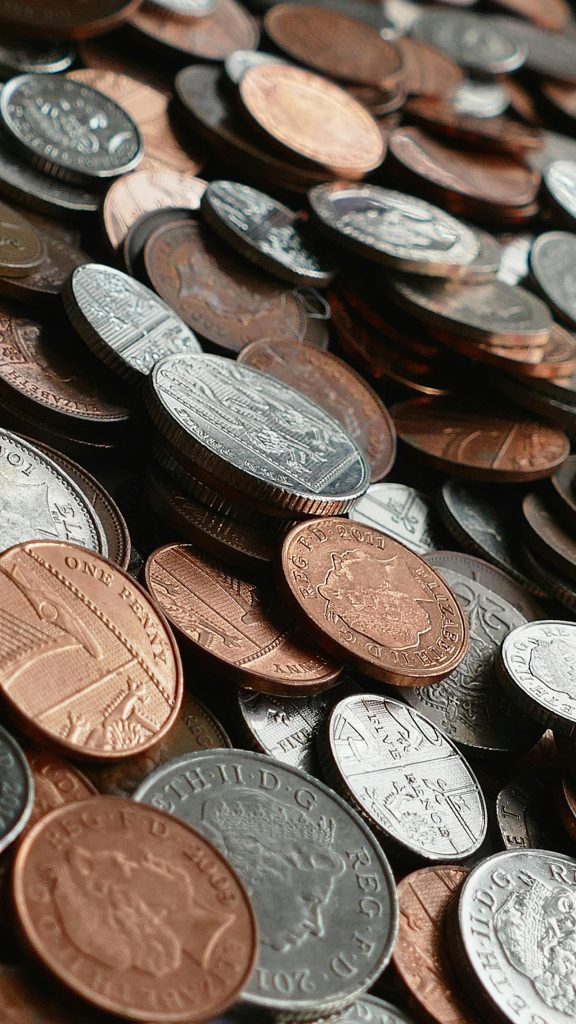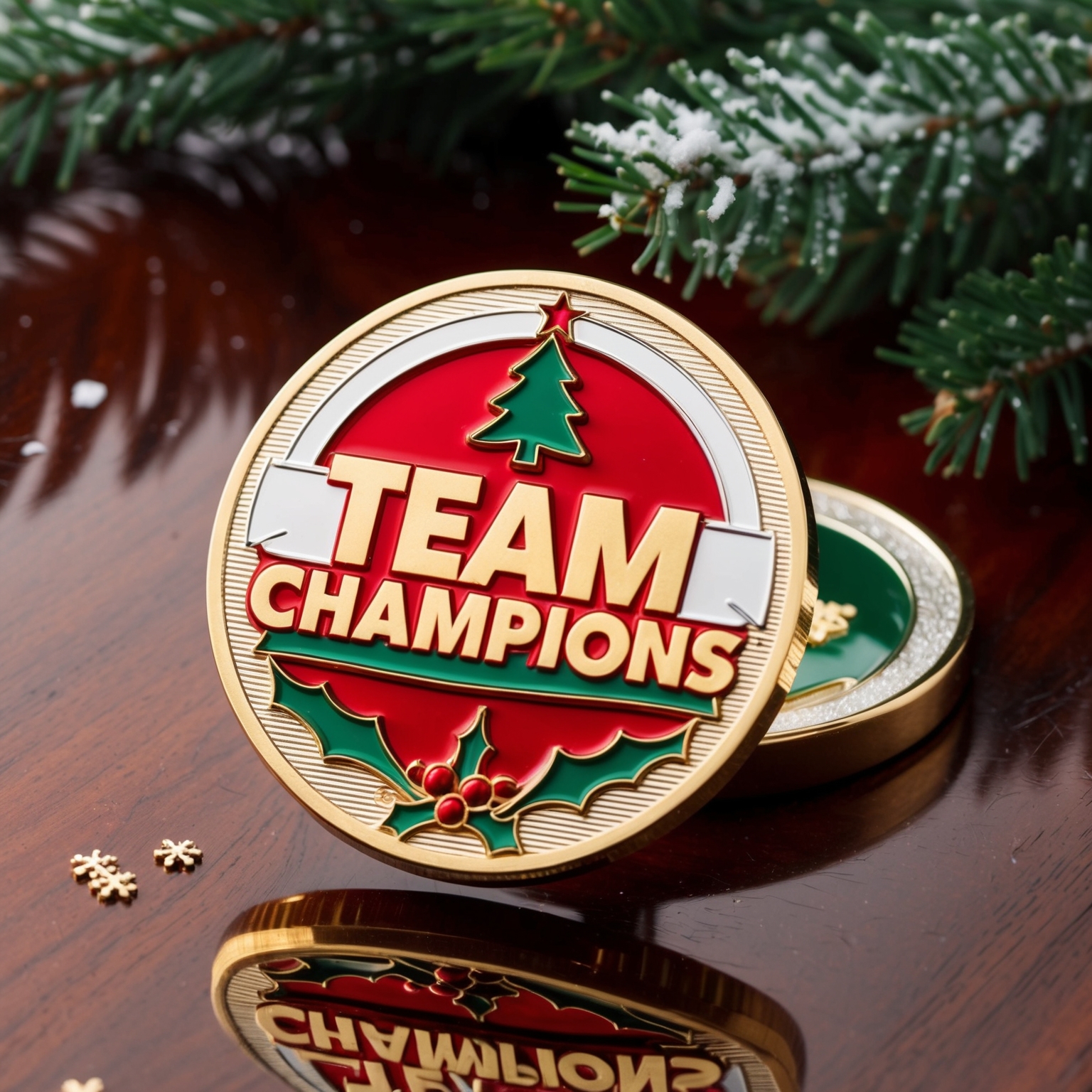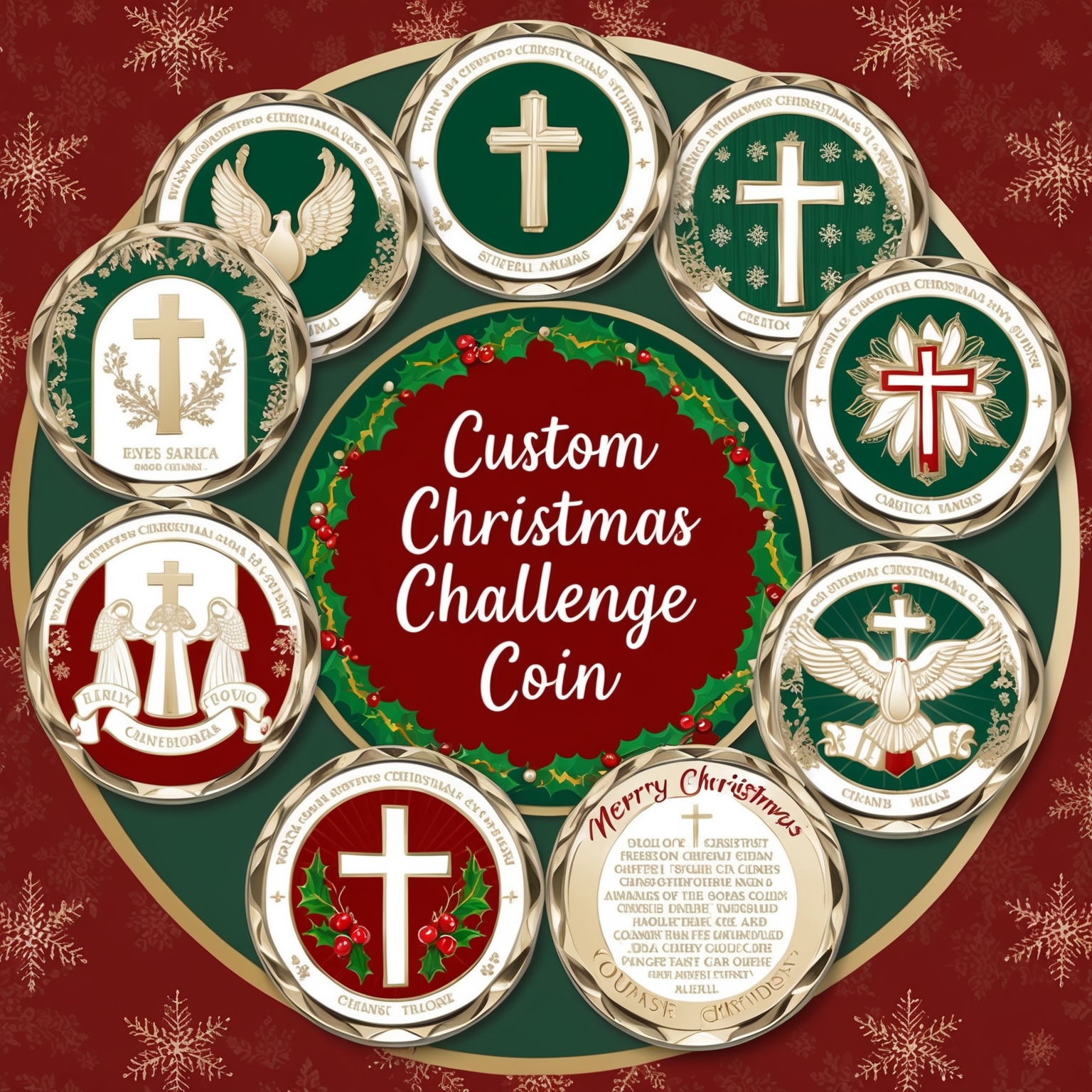The Appeal of Custom Challenge Coins
Collecting custom challenge coins is a fascinating hobby that combines elements of history, art, and personal connection. These coins, originally used in military contexts to symbolize camaraderie and honor achievements, have expanded into various sectors, including law enforcement, corporate environments, and hobbyist communities. Each coin tells a unique story and serves as a tangible representation of events, affiliations, or accomplishments.
For those new to this hobby, starting a custom challenge coin collection can be an exciting yet daunting endeavor. With countless designs, themes, and origins to explore, it’s easy to feel overwhelmed. This comprehensive guide provides nine essential tips to help you start your collection with confidence, whether you’re drawn to military coins, corporate commemoratives, or unique custom designs. These tips will cover everything from choosing a focus to preserving your collection, ensuring you build a collection that is meaningful, valuable, and enjoyable.
1. Choosing a Focus for Your Collection
How can collectors decide on a focus or theme for their custom challenge coin collection?
Solution: Choosing a focus or theme for your collection is the first step in building a meaningful and cohesive custom challenge coin collection. A focused collection allows you to dive deeper into specific interests and makes it easier to set collecting goals.
Common themes include:
- Military Units and Branches: Collect coins from different military units, branches, or conflicts. This theme offers a rich history and a wide variety of designs.
- Law Enforcement and First Responders: Focus on coins from police departments, fire departments, EMS, and other first responder organizations.
- Corporate and Organizational Coins: Collect coins issued by corporations, non-profit organizations, or special events.
- Commemorative and Special Edition Coins: Seek out coins commemorating significant events, anniversaries, or achievements.
- Custom and Artistic Designs: Explore coins that feature unique or artistic designs, often created by individual artists or small groups.
By selecting a theme, you create a clear path for your collection. This focus helps you make informed decisions about which coins to acquire and provides a narrative that ties your collection together.
2. Researching and Learning About Challenge Coins
Why is it important to research and learn about challenge coins, and how can collectors do so effectively?
Solution: Research and knowledge are crucial for building a valuable and meaningful custom challenge coin collection. Understanding the history, symbolism, and context of the coins you collect enriches your experience and helps you make informed purchasing decisions.
Ways to research and learn about challenge coins:
- Books and Publications: Read books, magazines, and articles on the history and significance of challenge coins. Many numismatic publications offer valuable insights into specific themes and types of coins.
- Online Resources: Explore websites, forums, and social media groups dedicated to challenge coins. These platforms often feature discussions, news, and expert opinions.
- Museums and Exhibits: Visit museums and exhibits that showcase challenge coins, especially those with historical or military collections. Seeing coins in person can provide a deeper appreciation of their craftsmanship and significance.
- Networking with Collectors: Connect with other collectors to share knowledge and experiences. Joining a numismatic society or a local collectors’ club can provide access to valuable resources and networking opportunities.
Researching and learning about challenge coins not only enhances your collecting experience but also helps you identify authentic coins and avoid common pitfalls.
3. Setting a Budget for Your Collection
How can collectors set a budget for building their custom challenge coin collection?
Solution: Setting a budget is a practical and essential step in building a custom challenge coin collection. A budget helps you manage your expenses, prioritize purchases, and avoid overspending.
Steps to set a budget:
- Determine Your Financial Limits: Decide how much you can comfortably spend on your collection without impacting your other financial responsibilities.
- Allocate Funds for Different Types of Coins: Depending on your focus, allocate funds for different types of coins. For example, you may set aside a higher budget for rare or high-value coins while keeping a smaller budget for more common pieces.
- Consider Additional Costs: Factor in additional costs such as storage solutions, coin grading, and membership fees for collectors’ clubs or numismatic societies.
- Plan for Future Purchases: Your budget may evolve as your collection grows. Plan for future purchases by setting aside a portion of your budget for upcoming auctions, coin shows, or special releases.
By setting a budget, you can make thoughtful and deliberate purchases, ensuring that your collection grows in a financially sustainable way.
4. Finding and Acquiring Coins
Where can collectors find and acquire custom challenge coins?
Solution: Finding and acquiring custom challenge coins involves exploring various sources and channels. Each source offers unique opportunities and potential challenges.
Common sources for acquiring challenge coins:
- Online Marketplaces: Websites like eBay, Etsy, and specialized coin shops offer a wide range of challenge coins. These platforms provide convenience and access to a global market but require careful consideration of seller reputation and coin authenticity.
- Coin Shows and Conventions: Attending coin shows and conventions allows you to view coins in person, meet dealers and other collectors, and purchase items for your collection. These events often feature rare and unique coins not available online.
- Collectors’ Clubs and Societies: Joining collectors’ clubs and numismatic societies can provide access to exclusive coin sales, auctions, and trading opportunities. Networking with members can also lead to private sales or trades.
- Official Organizations and Events: Many organizations, including military units, police departments, and corporations, produce custom challenge coins. Participating in events or reaching out to these organizations can be a way to obtain official coins.
- Antique Shops and Estate Sales: Occasionally, challenge coins can be found in antique shops or estate sales. These venues may offer unique finds but require careful inspection for authenticity and condition.
When acquiring coins, it’s essential to verify their authenticity and condition, especially when purchasing from unfamiliar sources. Researching the coin’s history and provenance can also provide valuable context and enhance its significance in your collection.
5. Evaluating Coin Condition and Authenticity
How can collectors evaluate the condition and authenticity of custom challenge coins?
Solution: Evaluating the condition and authenticity of custom challenge coins is crucial for ensuring the quality and value of your collection. Understanding the grading system and recognizing key indicators of authenticity can help you make informed decisions.
Key factors to consider:
- Condition (Grading): Coins are graded based on their condition, ranging from Poor (P-1) to Mint State (MS-70). The grade reflects the coin’s wear, luster, and overall appearance. Mint State coins are uncirculated and show no signs of wear, while lower grades indicate varying degrees of wear and damage.
- Material and Finish: Authentic coins are made from specific materials, such as bronze, silver, or nickel. The finish should be consistent with the coin’s intended design, whether polished, matte, or enameled.
- Design and Details: Authentic coins have sharp, well-defined details. Blurry or inconsistent designs may indicate counterfeits. Pay attention to the coin’s artwork, lettering, and any unique features.
- Provenance and Documentation: Provenance refers to the coin’s history of ownership. Authentic coins often come with documentation, such as certificates of authenticity or information about the issuing organization.
- Signs of Wear or Damage: While some collectors appreciate coins with natural wear, excessive damage, scratches, or alterations can significantly reduce a coin’s value.
When evaluating coins, consider consulting with experienced collectors or professional numismatists. They can provide valuable insights and help verify the authenticity and condition of your acquisitions.
6. Storing and Displaying Your Collection
What are the best practices for storing and displaying a custom challenge coin collection?
Solution: Proper storage and display are essential for preserving the condition and value of your custom challenge coin collection. The right storage solutions protect coins from environmental factors, physical damage, and deterioration.
Best practices for storing and displaying coins:
- Coin Holders and Flips: Individual coin holders and flips provide basic protection against dust, moisture, and handling. Choose holders made of archival-quality materials that are free of PVC.
- Coin Capsules: Coin capsules are hard plastic cases that offer excellent protection. They create an airtight seal, preventing exposure to air and contaminants.
- Display Cases and Frames: Display cases with glass fronts or frames with coin holders allow you to showcase your collection while protecting it from dust and light. Look for display solutions with UV protection to prevent fading.
- Safe Storage: For valuable or rare coins, consider using a safe deposit box or a home safe. This provides additional security against theft and environmental damage.
- Organizing by Theme: Organize your collection by theme, year, or type. This makes it easier to manage and enhances the visual appeal of your display.
Proper storage and display not only protect your coins but also allow you to enjoy and share your collection with others.
7. Documenting and Cataloging Your Collection
How can collectors effectively document and catalog their custom challenge coin collections?
Solution: Documenting and cataloging your collection is a crucial aspect of coin preservation and organization. A detailed catalog helps you keep track of your coins, their provenance, and their condition.
Steps for cataloging your collection:
- Create a Digital or Physical Record: Use a spreadsheet, database, or specialized software to record details about each coin, including the date, denomination, material, condition, and any notable features.
- Photograph Your Coins: Take clear, high-quality photos of each coin, capturing both the obverse and reverse sides. Include close-ups of unique details or inscriptions.
- Record Provenance and History: Document the history and provenance of each coin, including previous owners, purchase details, and any accompanying documentation.
- Update Regularly: Keep your catalog up to date with new acquisitions, changes in condition, or updated values.
A well-maintained catalog not only helps you manage your collection but also adds to its value by providing a comprehensive record of each coin’s history and condition.
8. Connecting with the Coin Collecting Community
How can connecting with the coin collecting community benefit collectors?
Solution: Connecting with the coin collecting community offers numerous benefits, including access to knowledge, resources, and networking opportunities. Engaging with other collectors can enhance your collecting experience and provide valuable support.
Ways to connect with the community:
- Join Numismatic Societies: Becoming a member of numismatic societies or local collectors’ clubs provides access to exclusive events, publications, and networking opportunities.
- Attend Coin Shows and Conventions: Coin shows and conventions are excellent venues for meeting dealers, experts, and fellow collectors. These events often feature auctions, seminars, and special exhibits.
- Participate in Online Forums and Groups: Online forums and social media groups dedicated to coin collecting are valuable platforms for sharing information, asking questions, and discussing collecting strategies.
- Engage with Dealers and Experts: Building relationships with reputable dealers and numismatists can provide access to rare coins, expert advice, and authentication services.
Active participation in the coin collecting community helps you stay informed about market trends, discover new collecting opportunities, and connect with others who share your passion.
9. Continuing Education and Staying Informed
Why is ongoing education important for collectors, and how can they stay informed about the custom challenge coin market?
Solution: Ongoing education is essential for collectors to stay informed about best practices, market trends, and new developments in the field of custom challenge coins. Continuous learning enhances your collecting skills and helps you make informed decisions.
Ways to continue your education:
- Read Numismatic Literature: Explore books, magazines, and online articles on coin collecting, history, and preservation. Many numismatic publications offer insights into specific types of coins and market trends.
- Attend Educational Events: Participate in seminars, workshops, and lectures hosted by numismatic societies, museums, or collectors’ clubs.
- Follow Market Trends: Keep an eye on auction results, price guides, and market reports to understand the value and demand for different coins.
- Consult Experts: Seek advice from experienced collectors, dealers, or professional numismatists. They can provide valuable insights and help you navigate complex collecting decisions.
By staying informed and continuing your education, you can enhance your collecting experience and ensure the long-term success and enjoyment of your custom challenge coin collection.
Building a Meaningful and Valuable Custom Challenge Coin Collection
Building a custom challenge coin collection is a rewarding and enriching hobby that offers endless opportunities for exploration and discovery. From choosing a focus and setting a budget to finding and acquiring coins, each step of the collecting journey is filled with excitement and learning. By following the nine essential tips outlined in this guide, you can build a collection that is not only valuable but also deeply meaningful and personally significant.
Whether you’re drawn to the rich history of military coins, the unique designs of custom creations, or the commemorative value of special edition pieces, the world of custom challenge coins has something for every collector. As you embark on this journey, embrace the joy of discovering new coins, connecting with fellow collectors, and preserving the stories and history that each coin represents.
Remember that collecting is a personal journey, and there is no right or wrong way to build your collection. Follow your interests, stay curious, and enjoy the adventure of collecting custom challenge coins.
If you are interested in designing your very own high-quality custom challenge coins feel free to call us at 855-471-6752 or fill out one of our FREE QUOTE FORMS.



